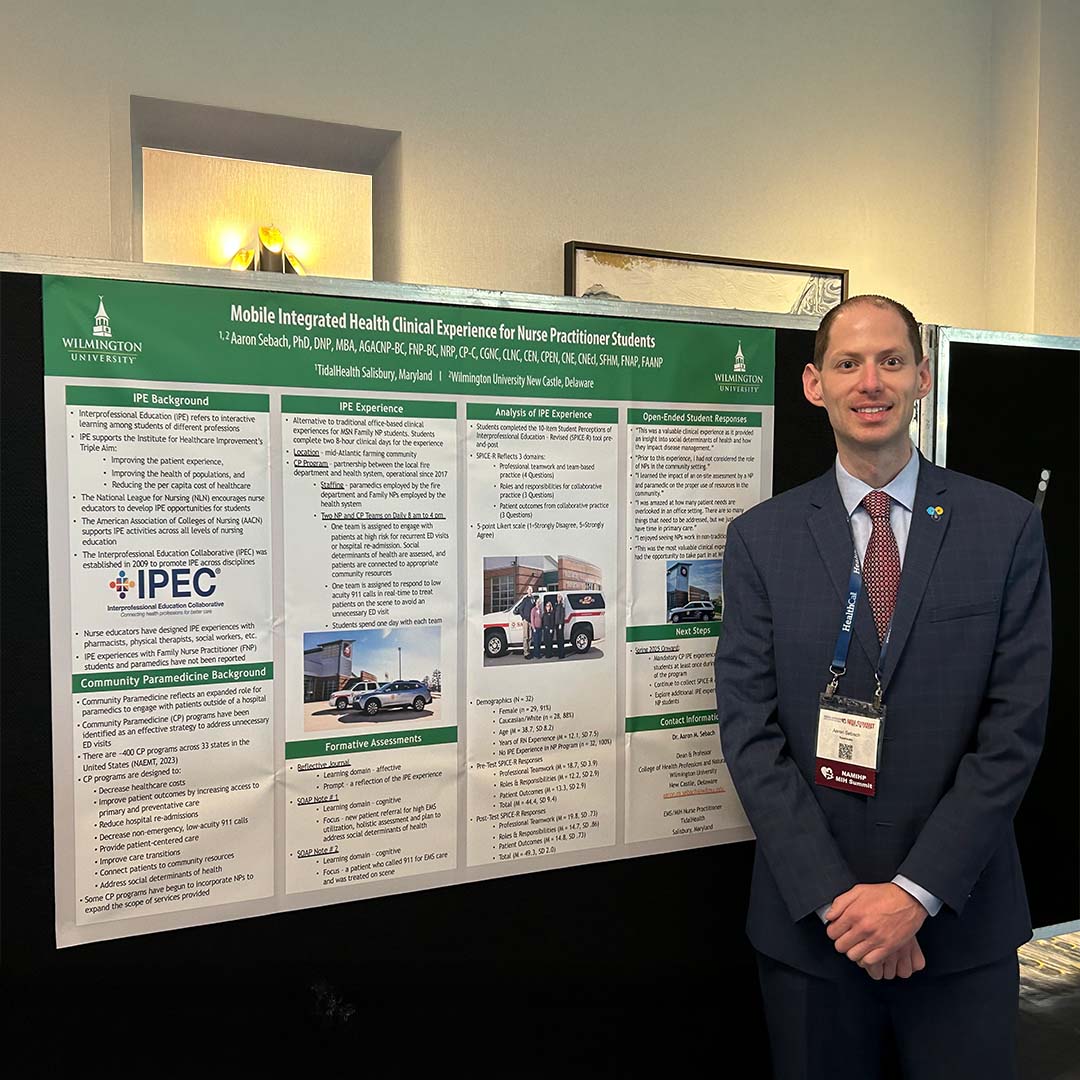Preventive Measures that Can Reduce 911 Calls

Nurse practitioners are leading the way in providing preventive health care to patients who might otherwise wind up dialing 911 for emergency medical assistance. Dr. Aaron Sebach, dean of the College of Health Professions & Natural Sciences, shared his expertise as a board-certified nurse practitioner and community paramedic at the National Association of Mobile Integrated Health Providers (NAMIHP) Summit in Tampa, Florida.
Dr. Sebach’s address, “It’s a Balancing Act: Comprehensive Fall Prevention Strategies for Older Adults,” focused on best practices for preventing injuries in the home. His experience includes working with paramedics at the fire department in Salisbury, Maryland, who often receive calls for emergency services from patients with conditions that are not immediately life-threatening. He also collaborates with social workers, community health workers, registered nurses, nurse practitioners, physicians, physical therapists, and pharmacists to identify the social determinants that result in inappropriate and/or frequent EMS calls.
“We presented morbidity and mortality rates associated with falls in the elderly, as well as evidence-based interventions for mobile integrated health providers to reduce falls and associated 911 calls,” Dr. Sebach says.
MSN FNP alumna Jessica Stoner and physical therapist colleague Amanda Adkins also presented at the NAMIHP Summit. In addition, Dean Sebach presented a poster highlighting Mobile Integrated Health clinical experiences for NP students at Wilmington University.
— Eileen Smith Dallabrida



